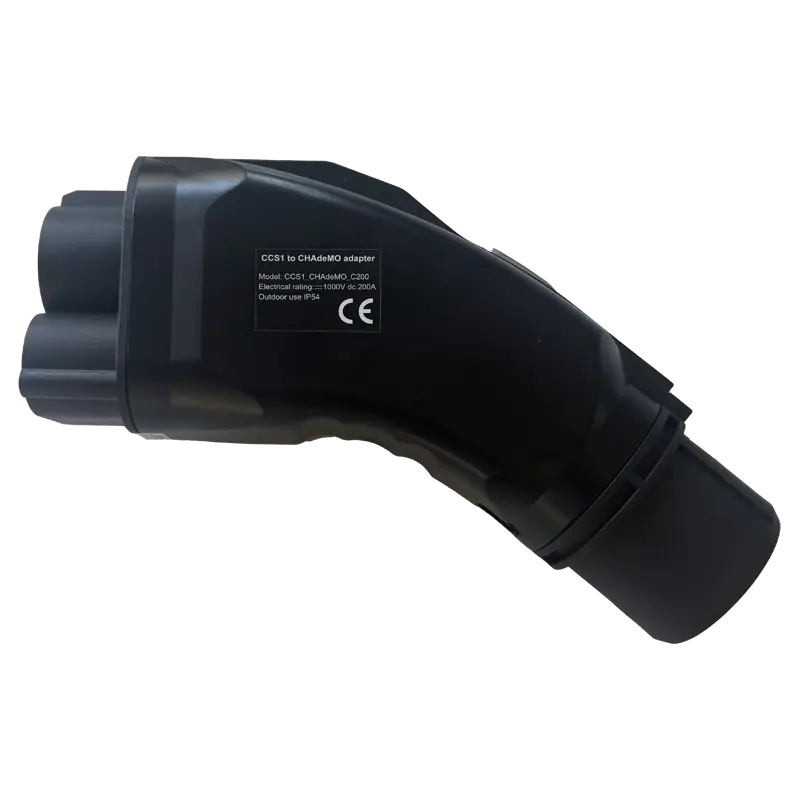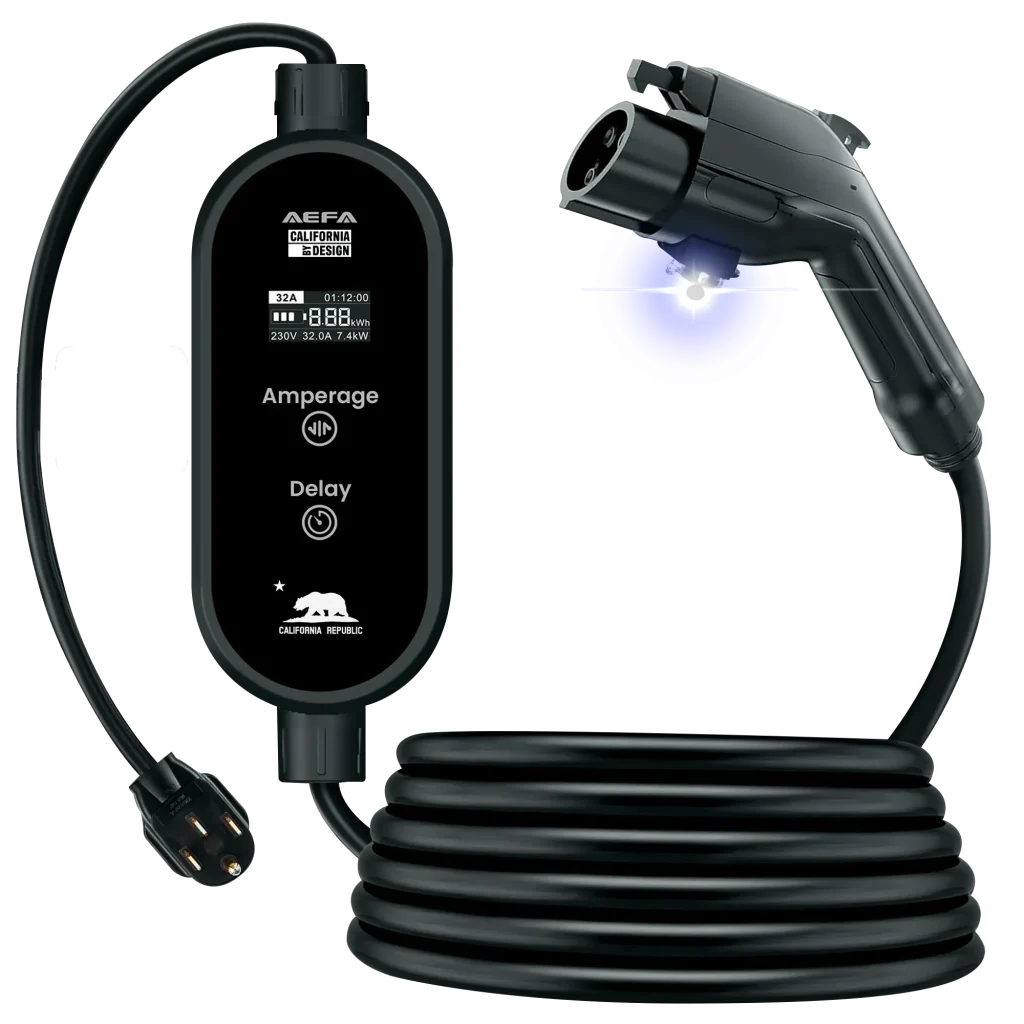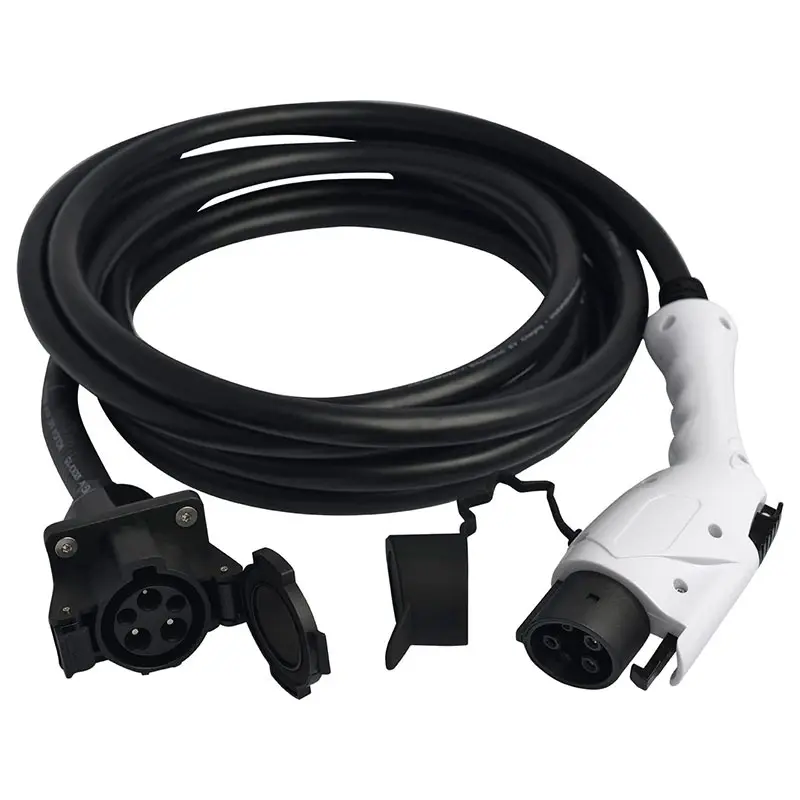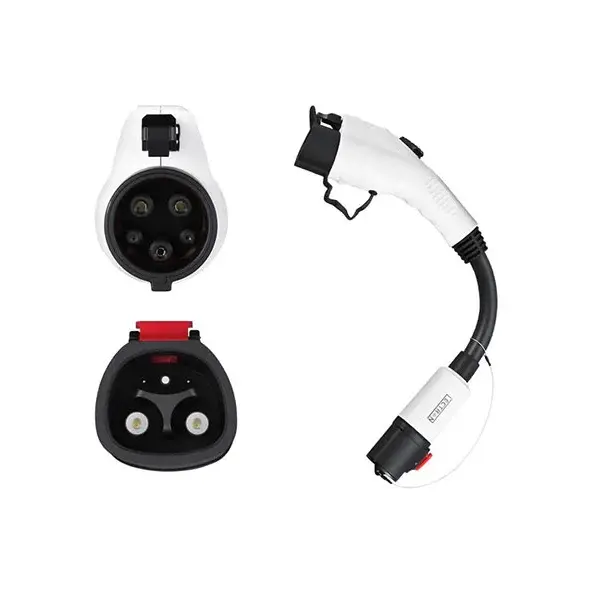Background on the J1772 connector
J1772 is currently the gold standard EV charger connector for all U.S. and Canadian electric vehicles and plug-ins. The J1772 EV charging standard was adopted to have one connector type for all EV chargers (EVSEs), whether commercial or residential. The only vehicles up until 2024 not to use J1772 are Tesla. The first electric vehicles in the U.S., such as the Nissan Leaf, Toyota Prius, and Mitsubishi Outlander, had the J1772 type EV connector, and other car makers followed this trend.
J1772 Chargers, also referred to as SAE J1772, represent a standardized electric vehicle (EV) charging connector type developed by the Society of Automotive Engineers (SAE). By standardizing the connector type used for all EVs, the industry aimed to simplify charging and speed up the adoption of electric vehicles in North America. It is known as type 1, SAE J1772, or a non-Tesla connector.
J1772 standard connector will change in the future
It’s important to note that the J1772 standard is changing. Tesla uses a NACS connector, so it is not compatible with a J1722 EV charger. Until mid-2020, all North American vehicles produced until 2024 will have a J1772 connector (except Tesla). From mid-2024 and early 2025, some EV manufacturers will be adopting the NACS (North American Charging Standard) charger connector on their vehicles. NACS, designed by Tesla, Inc., was opened up for use by other car manufacturers in 2022.
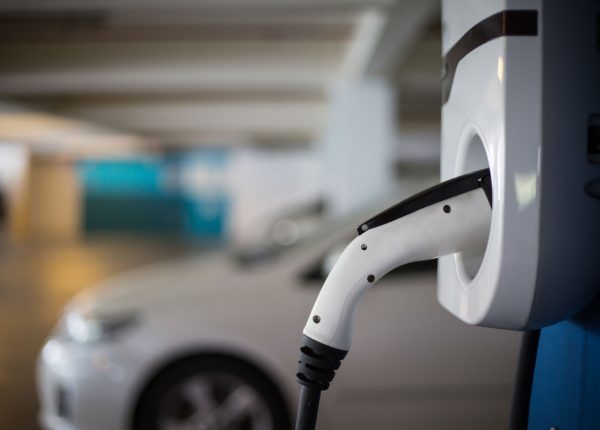
Which makers have announced they will move away from J1772 to NACS?
Fisker, Ford, General Motors, Honda, Hyundai Motor Group, Jaguar Land Rover, Mercedes-Benz, Nissan, Polestar, Rivian, and Volvo have announced that starting from 2025, their newly produced electric vehicles in North America will be equipped with the NACS charge port. This will be on a vehicle-by-vehicle basis. This will allow these automakers to provide Tesla Supercharging capability for its NACS-fitted vehicles, which current J1772 connector type are not compatible with. Whilst this opens up a lot of Tesla charging stations to NACS type for manufacturers such as Ford, it puts more pressure on the Tesla charging station infrastructure and limits the ability of a new Ford owner to go to traditional charging stations such as EVGO or Electrify America, where certain NACS adapters are not available.
J1772 Charger Standardization over the last 10 years
The North American market wanted to avoid the situation in Europe especially where different car manufacturers developed different connectors. This created confusion and problems for owners, especially at commercial charging stations where they found that their car did not fit a type J1772 connector. As we mentioned the NACS signatories will somewhat undo this.
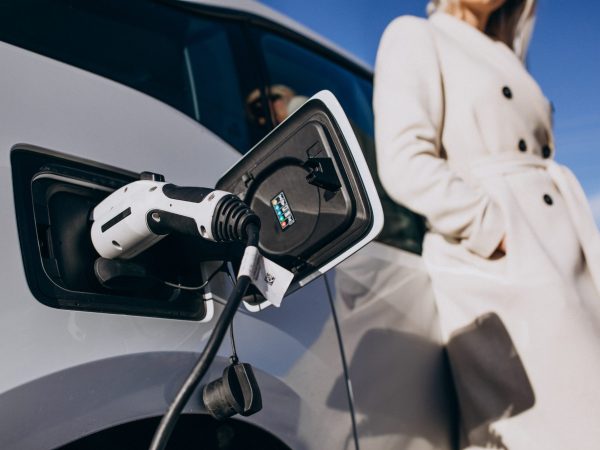
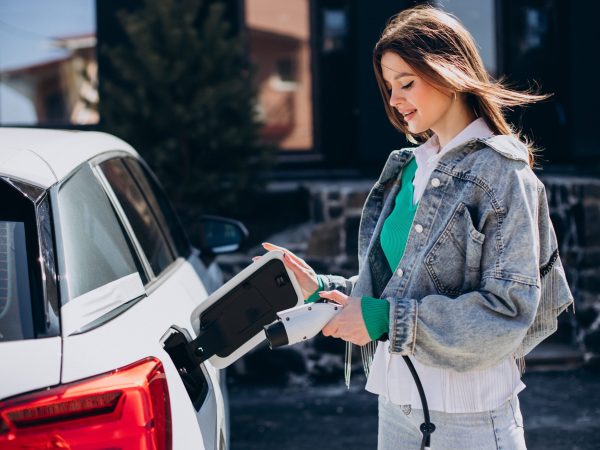

J1772 Charger Compatibility
J1772 Chargers up until 2024 are compatible with all North American vehicles such as Chevrolet, Ford, Kia, Hyundai, Volvo, Rivian, Fisker, Subaru, Toyota, and Cadillac (this list is not exhaustive). This compatibility extends to plug-in hybrid electric vehicles (PHEVs), meaning J1772 is currently the standard for all non-Tesla. The benefit of this is that for any non Tesla vehicle currently, any residential or commercial chargers will fit the J1772 connector.
Original advantages of J1772 Chargers
J1772 Chargers offer numerous advantages contributing to their prominence within the EV charging infrastructure:
Global standards
The J1772 connector is used extensively in global markets such as Europe, South Africa and Australia. The means automakers can use the same design for all their cars and avoids the costs of non-standardization.Pulsar Plus can deliver up to 30-35 miles of range per hour. Featuring a super sleek and compact design, this level 2 240V powerhouse can be adjusted from 16A to 40A or 48A depending on the model.
User-Friendly
The J1772 connector is designed to be user-friendly, facilitating straightforward plug-in and disconnect actions. This user-friendliness encourages more individuals to embrace electric vehicles. Many EV owners like that the clip design securely clips the J1772 charger in place mechanically which the NACS EV charger type does not (this is purely done electronically and through the press fit design).
Commercial EV charging infrastructure
Many public charging stations such as EVGo and Electrify America are equipped with J1772 connectors, providing a wider charging solution across North America. This meant EV owners did not need to carry different types of adapter.
Safety
J1772 Chargers incorporate safety features, including interlocking mechanisms and ground fault protection, ensuring secure and hazard-free charging experiences.
J1772 Charger Compatibility
J1772 Chargers up until 2024 are compatible with an extensive array of electric vehicles, encompassing popular brands like Nissan, Chevrolet, Ford, and more. This compatibility extends to plug-in hybrid electric vehicles (PHEVs), rendering J1772 a versatile choice for a diverse range of EV owners.
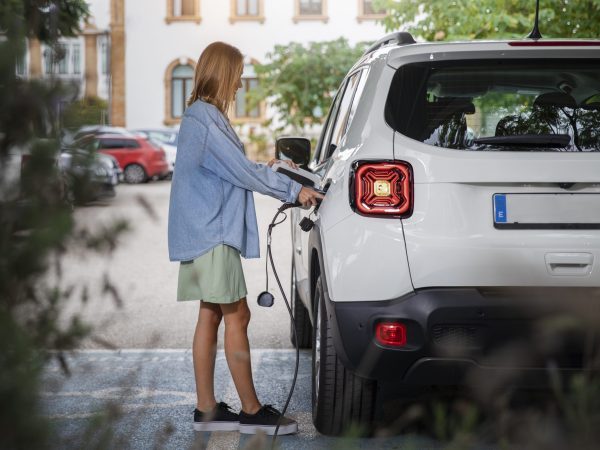
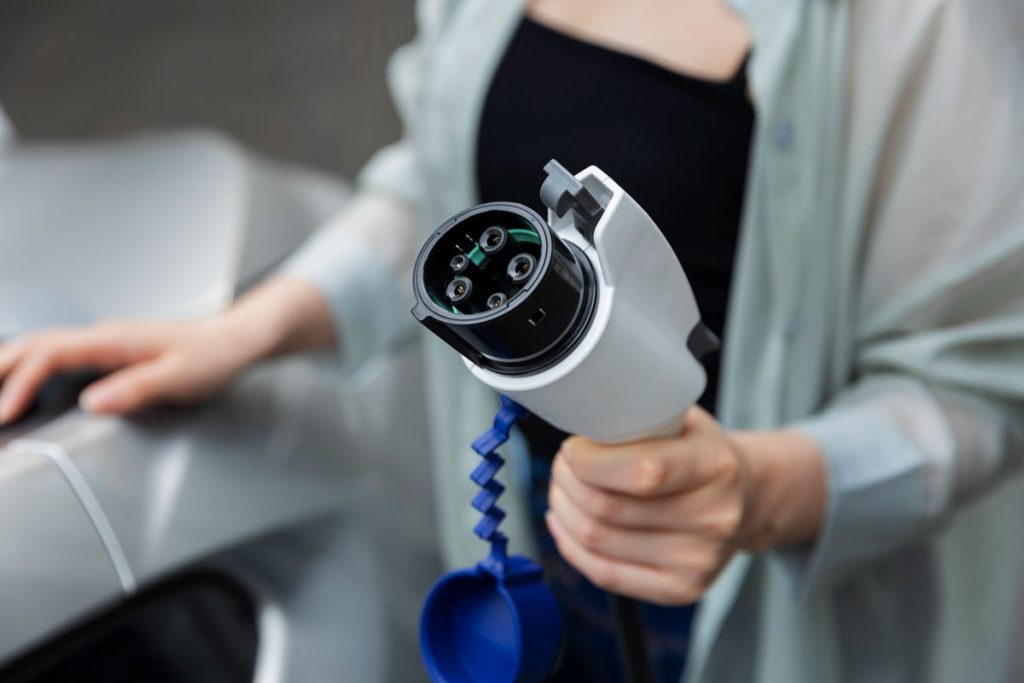

J1772 Charging Speeds and Levels
J1772 Chargers support various charging speeds and levels, with the specific charging speed contingent upon the capabilities of the electric vehicle (how fast the battery can accept charge) and the charging station (voltage and amperes). While J1772 Chargers can deliver relatively swift charging, they are not categorized as ultra-fast chargers akin to Tesla’s Superchargers. These run at much higher voltages, typically 250 kW at 400 volts.
Level 1 and Level 2 J1772 EV chargers are more typically used for residential charging at 208-to-240-volt levels (there is a range since there is variation in voltage from the grid to the residence). Commercial charging using the J1772 bottom section and a DC section at the top (the top part of the connector accepts a direct current feed instead of an alternating current via the J1772 feed). When a J1772 connector is used for the purposes of commercial charging it is called a CCS1 connector type
J1772 is used for level 1 and level 2 EV charging
Residential EV chargers or EVSEs mostly are J1772. We now provide NACS residential EV chargers (see our NACS EV charger section) also. J1772 type EV chargers are used for Level 2 and Level 1 residential charging, which are 220-240 volt and 120 volts respectively.

Installation Tips and Best Practices
The installation of a J1772 charging station necessitates careful planning and adherence to best practices:
Location
Select a convenient and easily accessible location for the charging station, factoring in considerations such as parking space availability, electrical infrastructure, and user convenience.
Electrical Capacity
Ensure that the electrical circuitry and capacity can accommodate the charging station's power requirements without overloading the system.
Professional Installation
It is advisable to enlist a qualified electrician for the installation of the charging station to ensure proper electrical connections and compliance with safety standards.
Weather Protection
If the charging station is located outdoors, provide adequate weather protection to shield it from environmental elements.
Regular Maintenance
Conduct routine maintenance checks to uphold the charging station's optimal working condition.
Enhance Your J1772 Charging Experience
To elevate your J1772 charging experience, you might explore accessories such as the Tesla to J1772 adapter, which permits Tesla owners to utilize J1772 charging stations. Furthermore, delve into an array of dependable and efficient EV Chargers to effortlessly power your electric vehicle.
J1772 Charger FAQs
Will the J1772 connector type become obsolete?
We have been observers of the industry for some time as stakeholders. We believe given the charging infrastructure, superior technology, and ecosystem that the J1772 adapter type could be phased out and replaced by NACS. That said, there will still be existing vehicles with the J1772 connector and a need for those to get charged.
What is the J1772 connector also known as?
It is also known as a J plug or Type 1 connector after its corresponding international standard, IEC 62196 Type 1.
Is J1772 the most popular non-Tesla (NACS) type EV charger connector?
Yes but we believe NACS EV chargers will become more popular from 2025 onwards as other automakers adopt the NACS standard.
What is the difference between J1772 and CCS?
CCS 1 is the commercial charging, higher-power version. The EV charger will use the J1772 receptacle on your car and a two-pin fitting below the J1772 connector on your car’s EV charging port. The Combined Charging System (CCS) Combo interface provides support for dc fast charging by adding two additional pins to the J1772 type 1 connector.
What vehicles use J1772 plug?
A wide range of electric vehicles from various car manufacturers use the J1772 plug, including models from Nissan, Chevrolet, Ford, BMW, and more.
Is a J1772 a fast charger?
While J1772 Chargers offer relatively fast charging compared to standard household outlets, they are not considered ultra-fast chargers. They typically provide Level 2 charging, which is faster than Level 1 (household) charging but slower than specialized DC fast charging stations.
Can I use my J1772 EV charger to charge my car with a NACS connector?
Yes, adapters are available that go on the end of your J1772 EV chargers and make it NACS compatible
Can Tesla use J1772?
No, for commercial charging Tesla has its proprietary charging network that uses a different technology. For other types of Tesla chargers such as any Tesla High Powered Connector, Destination Charger, or Mobile Connector a J1772 adapters can be used to charge J1772 EVs from a Tesla NACS EV charger.

